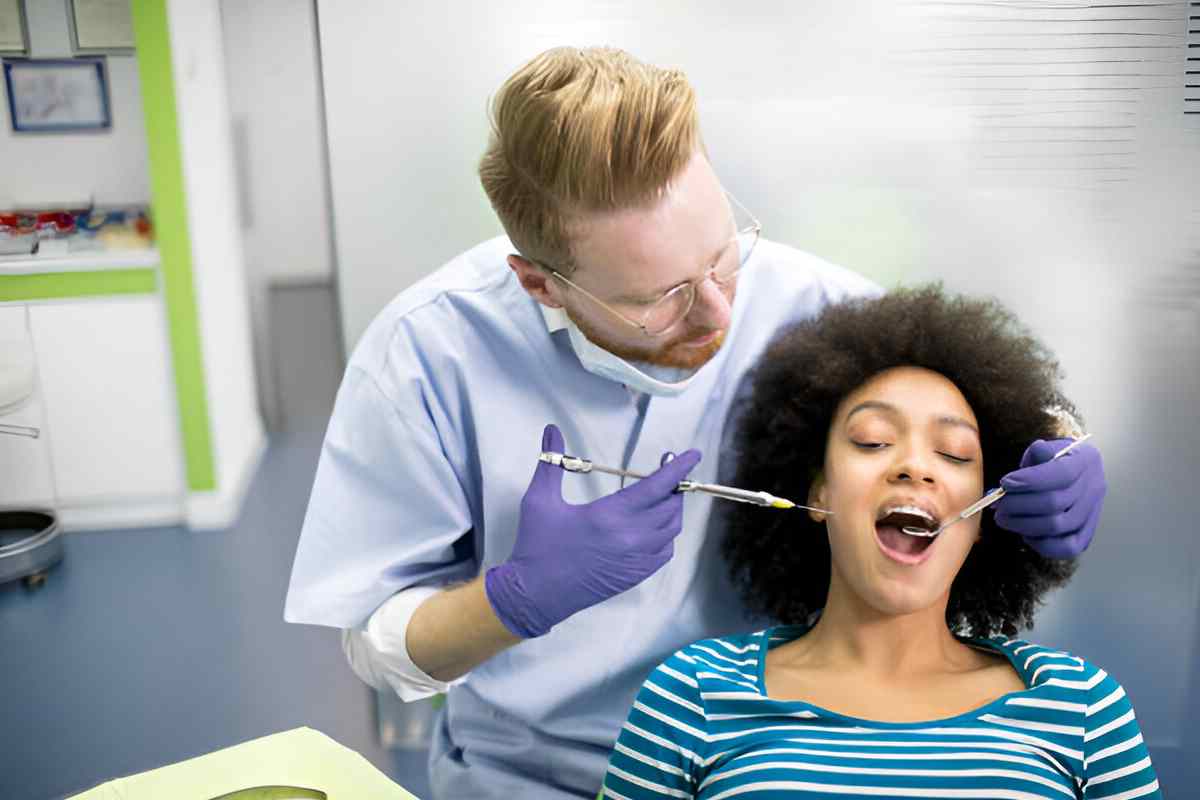The state of your oral health can have significant implications for your overall well-being. Your mouth is home to a diverse range of harmless bacteria, but it also acts as a gateway to your digestive and respiratory systems. On occasion, harmful bacteria can find their way into your body through the mouth, potentially causing various diseases.
Hence, it’s essential to be aware of warning signs in your oral health that might indicate underlying issues in your overall health, including:
- Halitosis (Bad Breath): Bad breath can be a sign not only of oral issues but also of other health conditions.
- Gum Bleeding: Bleeding gums could be indicative of oral diseases, and they may also signal broader health concerns.
- Xerostomia (Dry Mouth): A persistently dry mouth is not only uncomfortable but may also be a symptom of other health problems.
It’s worth noting that individuals with periodontal (gum) disease are 40% more likely to have other concurrent health conditions compared to those without gum disease.
In fact, the overabundance of bacteria responsible for periodontal disease can also contribute to a range of other health problems, including:
- Cardiovascular Disease: The American Heart Association recognizes a connection between gum disease and cardiovascular issues. Oral inflammation and infections have been linked to strokes, clogged arteries, and heart disease.
- Diabetes: Research has revealed that individuals with diabetes are at a heightened risk of developing gum disease, and gum disease may also hinder diabetes management. Infections and inflammation in the oral cavity can significantly impact blood sugar levels, potentially worsening diabetes.
- Pregnancy Complications: Hormonal changes during pregnancy can lead to various oral health problems. If left untreated, these minor issues can escalate to more significant problems such as gum disease. Oral health conditions, like gum disease, can impact the entire body and, in some cases, lead to premature birth. Pregnant individuals experiencing changes in their oral health should seek assistance from an orthodontist or dentist.
Table of Contents
Promoting Optimal Oral Health for Your Overall Well-Being
Having bacteria in your mouth is normal and beneficial for digestion, but an excess of harmful bacteria can lead to inflammation not only in your mouth but also in other parts of your body.
One effective way to reduce harmful bacteria in your mouth is by adopting good oral hygiene practices. This includes brushing your teeth twice a day, daily flossing, and visiting your dentist every six months for regular check-ups and cleanings. Consider consulting private orthodontists for specialised care to maintain optimal oral health.
Maintaining proper oral hygiene can be challenging if your teeth are misaligned, crooked, or crowded. Straightening your teeth with braces or Invisalign from private orthodontists can make oral care more manageable.
Additionally, if you’re concerned about the cost of orthodontic treatment, some orthodontic clinics offer free orthodontic treatments or consultations, making it more accessible for those looking to improve their oral health and overall well-being.
Increased Self-Esteem and Confidence Boost
Orthodontic treatment, such as braces, can lead to a significant improvement in your smile, as your teeth become straighter and more aligned, you’ll likely notice an enhancement in your self-image. This positive change in your appearance can boost your self-esteem, making you feel more confident and comfortable in your own skin.
Social Confidence
- A beautiful smile can have a profound impact on your social interactions. When you’re confident about your teeth, you’re more likely to smile and engage with others without reservation. This can lead to improved social connections, as people are naturally drawn to those who exude self-assuredness.
Professional Advancement and Healthier Personal Relationships
- Confidence plays a vital role in professional success. A confident smile can help you in job interviews, presentations, and networking events. When you’re confident in your appearance, it’s easier to focus on your skills and expertise, ultimately opening doors for career advancement.
- It can also positively affect your personal relationships as well. When you feel good about yourself, it’s easier to communicate openly and honestly with loved ones. Your improved self-esteem can contribute to healthier, more fulfilling relationships.
Positive Self-Perception
- Orthodontic treatment often requires patience and dedication. As you commit to the process and see your teeth gradually improve, it can instil a sense of accomplishment and pride, leading to a more positive self-perception, reinforcing your belief in your ability to achieve goals.
- The confidence and self-esteem boost you gain from orthodontic treatment can be long-lasting. Your investment in your smile can pay off for years to come, providing you with a sense of confidence that extends into various aspects of your life.
In summary, orthodontic treatment not only enhances your oral health and overall well-being but also contributes to an increased self-esteem and a significant boost in confidence. The journey to a straighter, more beautiful smile is not only about aesthetics; it’s about the profound impact on your self-image, personal relationships, and professional success.
Q&A
Q1) What is orthodontic treatment?
A1) Correcting misaligned teeth and jaws is the procedure of orthodontic therapy. Usually, braces or aligners are used for this, which are meant to realign the teeth to their proper alignment.
Q2) What health benefits may I expect from orthodontic treatment?
A2) Orthodontic treatments can boost self-esteem, lessen headaches and neck pain, improve dental hygiene, and improve mental health.
Q3) What things should I think about before receiving orthodontic care?
A3) Before deciding which course of action is appropriate for your specific circumstance, it’s crucial to discuss any potential treatments with your orthodontist.

